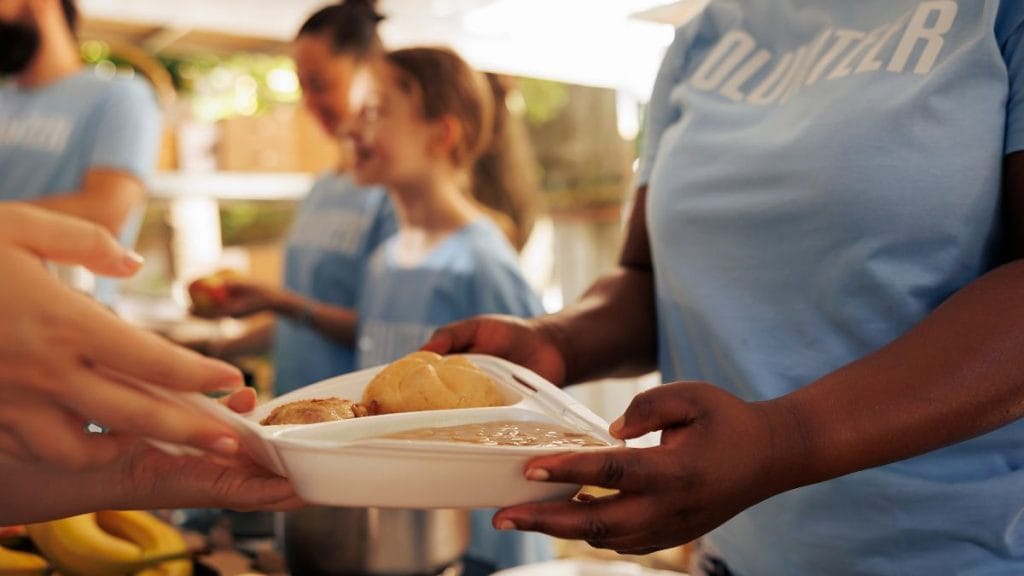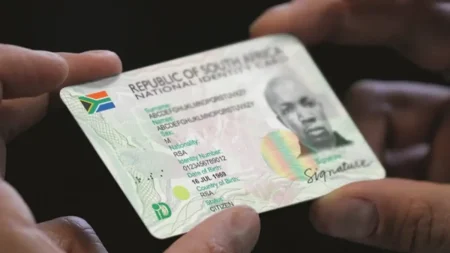In Gauteng, food insecurity continues to be a significant issue, especially in light of the recent changes to the food bank system. If you’re facing challenges in accessing basic food supplies, this guide provides timely information on where you can find help this week (03–05 Oct 2025). Immediate assistance is available through various food banks, community-based initiatives, and government services.
How This Week’s Guide Works
This guide provides a detailed, actionable list of food banks, distribution points, and help desks across Gauteng for those in need of food assistance. The list includes verified, operational services for the 3–5 October period, ensuring that you know where to go for immediate help.
What You’ll Need:
ID: You will likely need to bring your identification card.
Referral Letter: In some cases, a referral from a local organization or government service may be required.
Household Details: Be prepared to provide information about your household to ensure eligibility.
Vouchers: Some services may require vouchers to claim food parcels.
Important Advice:
Arrive early to avoid long queues, particularly in urban areas where demand is high.
Urban food banks may face higher traffic due to the recent centralization of services.
Rural areas may have different operating hours or food availability. Always confirm before heading out.
Food Banks & Help Desks List (03–05 Oct 2025)
Below are operational food banks and help desks organized by metro/area for clarity. For each location, check the opening hours and required documents before you go.
Johannesburg
FoodForward SA – Johannesburg Depot
Requirements: ID, household details, referral letter.
Notes: FoodForward SA distributes food via a network of over 2,500 organizations. While demand is high, this depot is a key resource for those in need in the city.
The People’s Pantry – Maker’s Valley
Requirements: Referral letter, ID.
Notes: Operating directly in low-income communities, this organization provides immediate relief to those in Johannesburg’s Maker’s Valley. Ideal for residents who need localized support.
FoodBank South Africa – Johannesburg Central
Requirements: ID, proof of need.
Notes: Located centrally, this food bank serves a large number of people, including those referred by local churches and NGOs.
Pretoria
Gauteng Provincial Food Bank – Pretoria Branch
- Requirements: ID, household details.
Notes: While facing challenges with supply, this central food bank offers food parcels to eligible families in Pretoria. Arriving early is recommended.
The Grace Community Centre – Pretoria East
Requirements: Referral letter, ID.
Notes: A local community-driven initiative focused on helping families in Pretoria East, The Grace Centre also offers counseling and grant advice.
Soweto / Tembisa / Mamelodi / Other Areas
Soweto Community Food Support
Requirements: Referral letter, ID.
Notes: A trusted local resource, this food bank primarily serves Soweto residents, with a focus on emergency relief and ongoing support for vulnerable groups.
Tembisa Local Help Desk
- Requirements: ID, household details.
Notes: This food desk is part of a grassroots initiative to help families in Tembisa. The community-based service ensures more personalized care and faster access to food parcels.
Requirements: Referral letter, ID.
Notes: Operated by a local NGO, this food bank supports families with emergency food and hygiene kits. It’s a critical service for residents of Mamelodi.
Ekurhuleni Food Relief (Tembisa & Benoni)
- Requirements: ID, proof of need.
Notes: Focused on the Ekurhuleni region, this service covers both Tembisa and Benoni, offering food parcels and other social services.
Tips for Maximizing Assistance
Arrive Early: Food supplies at popular food banks can run out quickly, especially in urban areas. Arriving early ensures a higher chance of receiving assistance.
Bring Bags/Trolleys: Be prepared to carry your food parcels, as some locations only provide the food and not bags or carts to carry it.
Additional Services: Some food banks also offer hygiene packs, clothing, and advice on applying for social grants. Be sure to ask if any extra services are available.
Combine Errands: If you have other errands, try to plan your visit to the food bank so you can maximize your transport costs and time.
FAQ
Can someone else collect food for me?
Yes, many food banks in Gauteng allow designated individuals to collect food parcels on behalf of others. They’ll need to provide the same documents (ID, referral letter) and sometimes a signed authorization letter. Always confirm this policy with the specific food bank before sending someone on your behalf.
Are children allowed to come with parents?
Generally, children are allowed to accompany their parents when collecting food parcels. However, it’s best to check with the Gauteng food banks you plan to visit, especially if there are specific crowd control measures in place.
What happens if the food bank runs out of stock?
Due to the high demand for food relief during this period, some food banks may run out of supplies. If this happens, you may be referred to another location or placed on a waiting list for future food parcel distributions. It’s advisable to check for updates through the food bank’s website or contact them directly.
How do I register for emergency assistance if I’m a first-time visitor?
First-time visitors to Gauteng food banks are typically required to provide an ID, proof of address, and sometimes a referral letter from a local NGO or government service. Some food banks might also require additional documentation to verify eligibility for food relief.
Can I collect food relief if I don’t have a referral letter?
While some food banks in Gauteng may require a referral letter, others offer immediate assistance without it. It’s worth contacting the food bank beforehand to check their specific requirements. If you don’t have a referral letter, some food banks may still be able to assist you based on your circumstances.
How often can I receive food parcels?
The frequency of receiving food parcels varies depending on the specific food bank. Many offer assistance on a weekly or monthly basis, but it’s essential to confirm with the individual food banks about their policies. If your situation is urgent, some food banks may offer more frequent support.
Do I need to pay for the food parcels?
No, food banks in Gauteng offer food relief free of charge to those in need. However, some food banks may request a small donation or ask if you can contribute in other ways (such as volunteering or donating non-perishable goods). The primary aim of Gauteng food banks is to provide assistance to vulnerable individuals and families without cost.
What types of food are included in the food parcels?
The contents of food parcels may vary, but they typically include staple foods such as maize meal, rice, beans, canned vegetables, and other non-perishable items. Some Gauteng food banks may also include fresh produce or hygiene kits depending on availability.
What if I live in a rural area? Are there food banks near me?
Rural areas in Gauteng may have fewer food banks than urban centres, but there are still several options for food relief. Some Gauteng food banks have mobile units or community outreach programs to assist rural areas. It’s best to check with local community centers or NGOs for information on rural distribution points.
Do I need to register with a specific food bank, or can I visit multiple food banks for help?
While some Gauteng food banks may require registration, you can generally visit multiple food banks for assistance if necessary. However, it’s important to confirm with each food bank about their registration process and whether you can access services at different locations.
Can I access food relief for my children or family members if they are not with me?
Yes, Gauteng food banks typically provide food parcels for entire households, including children and other dependents. If you cannot collect the food parcels in person, you may be able to designate someone to pick them up on behalf of your family, provided they bring the necessary documentation.
How do I know which food banks are operational during the holidays or over the weekend?
Some food banks in Gauteng may have different operating hours during holidays or weekends. It’s advisable to check their websites or contact them directly for up-to-date information on holiday schedules. Many food banks continue operations during holidays, but service hours may be limited.
What happens if I miss my food parcel collection time?
If you miss your food parcel collection time, you should contact the food bank immediately to reschedule. Many Gauteng food banks will hold parcels for a certain period before offering them to other individuals in need. Always make sure to confirm pick-up times and keep communication lines open.
Check also: Food Parcel Distribution Points in Gauteng
Here’s where you can get food, social support, and other assistance in Gauteng this week (03–05 Oct 2025). With many families struggling, timely access to food relief can make all the difference. Bookmark this guide for quick access to food banks and help desks in your area. Share it with others who may need immediate assistance, and don’t hesitate to reach out for help.
Remember, staying informed about available services and knowing where to go can ease the burden on struggling households. For the latest updates, visit the official websites of FoodForward SA, the Gauteng provincial food bank, and community-driven initiatives.










